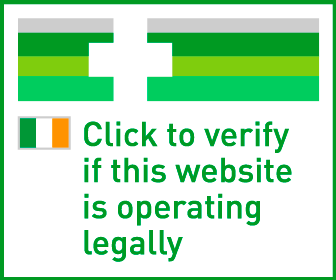Advice on how to help reduce your chances of getting COVID-19 & what to do if you think you have symptoms
What is coronavirus?
Coronaviruses are a large family of viruses which can cause disease in animals and humans. In humans, coronaviruses can cause mild respiratory infections, like the common cold, but can also lead to more serious illnesses, like Middle East Respiratory Syndrome (MERS) or Severe Acute Respiratory Syndrome (SARS). COVID-19 is a newly discovered strain of coronavirus.
What is COVID-19?
COVID-19 is an illness that can affect your lungs and airways. COVID-19 symptoms can range from very mild to severe. Some people may have only a few symptoms while some people may not have symptoms at all. COVID-19 can make anyone seriously ill, but for some people the risk is higher. People at higher risk from COVID-19 should take extra care to protect themselves.
How is it spread?
The COVID-19 virus is spread from person to person through respiratory droplets when an infected person coughs, sneezes or talks. It’s also possible to be infected by touching contaminated surfaces, which is why it’s very important to wash your hands regularly. Try not to touch your face, eyes or mouth with unwashed hands.
What are the symptoms of COVID-19?
The main symptoms of COVID-19 (coronavirus) are:
• A fever (high temperature – 38°C or above)
• A new cough – this can be any kind of cough, not just dry
• Shortness of breath or breathing difficulties
• Loss or change to your sense of smell or taste – this means you've noticed you cannot smell or taste anything, or things smell or taste different to normal
Although not everyone with coronavirus experiences symptoms, most people have at least one of these symptoms. Commonly, symptoms start to appear around five to six days after coming into contact with the virus. For a few people though, this can be as long as up to 14 days after.
What should I do if I have COVID-19 symptoms?
If you develop coronavirus symptoms, you should self-isolate (stay indoors and avoid other people) and phone your GP. Don’t go to a GP surgery, pharmacy or hospital. The GP will assess you over the phone. If they think you need to be tested for coronavirus, they’ll arrange a test.
How can I help to avoid catching or spreading germs?
Everyone should do what they can to stop coronavirus spreading. Remember even if you don’t have symptoms, you can still spread the virus. You can help prevent the spread of infection and avoid being exposed to coronavirus by doing the following:
• Try to stay at least two metres (three steps) away from anyone you don’t live with (or anyone not in your support bubble)
• Wash your hands with soap and water often – for at least 20 seconds each time
• Use hand sanitiser gel if soap and water are not available
• Wash your hands as soon as you get home
• Avoid touching your eyes, nose and mouth if your hands aren’t clean
• Cover your mouth and nose with a tissue or your sleeve (not your hands) when you cough or sneeze
• Put used tissues in the bin immediately and wash your hands afterwards
• Wear a face covering when out in public. It should cover your nose and mouth and fit securely and comfortably against the side of your face
If you develop coronavirus symptoms, you should self-isolate (stay indoors and avoid other people) and phone your GP.
What if I'm at high risk?
Although COVID-19 can make anyone seriously ill, the risk is higher in some people, like those with weakened immune systems, older people and those with long-term conditions (like diabetes or asthma). If you’re at high risk find out more about the things you can do to help protect yourself and others.
Is there a COVID-19 vaccination?
Three COVID-19 vaccines have been approved for use in Ireland and across the EU. These three vaccines, one developed by Pfizer/BioNTech, the second by AstraZeneca and the third by Moderna, are given in two doses.
What are the treatment options?
There is currently no specific treatment for coronavirus, but you can often ease the symptoms at home until you recover.
Treating a high temperature
• Get lots of rest
• Drink plenty of fluids (water is best) to avoid dehydration
• Take paracetamol or ibuprofen if you feel uncomfortable and if these are suitable for you. Always read the patient information leaflet first and follow the instructions
There have been some suggestions that ibuprofen might make COVID-19 symptoms worse or make you more prone to catching the virus. However, an Expert Working Group has now concluded that there isn’t enough evidence to establish this link.
Treating a cough
• Get lots of rest
• Drink plenty of fluids (water is best) to avoid dehydration
• Try hot lemon and honey (not suitable for babies under one year old)
• You may also want to try cough syrups or cough sweets. These will not stop your cough but may help you cough less
Where can I get more information on COVID-19?
The Department of Health have a range of information at: https://www.gov.ie/en/campaigns/c36c85-covid-19-coronavirus/
Health advice is available from the HSE website: https://www2.hse.ie/coronavirus/
Travel information is available via the Department of Foreign Affairs: https://www.dfa.ie/travel/travel-advice/coronavirus/
Information correct at time of publication (12.01am 26/01/2021)
KEEP YOURSELF & OTHERS SAFE
COVID-19 Vaccination Service
What you need to know
The difference between cold & flu
Spot the symptoms




